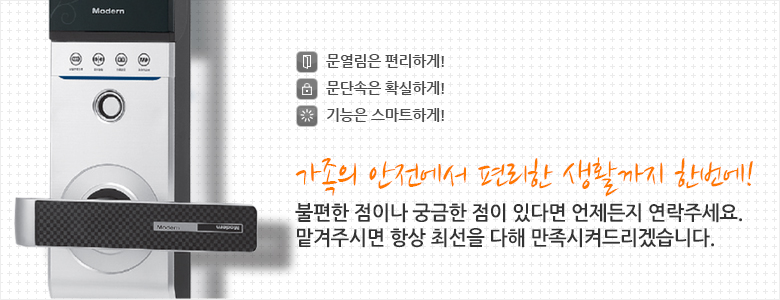Why People Are Talking About Getting An ADHD Diagnosis This Moment
페이지 정보
작성자 Dena Brooke 작성일25-02-22 10:29 조회5회 댓글0건본문
연락처 :
주소 :
희망 시공일 :
 Getting an ADHD Diagnosis
Getting an ADHD Diagnosis
 Getting an ADHD diagnosis can be a life changing experience. It explains why some people have difficulty staying focused in their work, following directions or staying focused.
Getting an ADHD diagnosis can be a life changing experience. It explains why some people have difficulty staying focused in their work, following directions or staying focused.
Ask your family doctor or therapist to refer you to a specialist. Contact your insurance provider to determine if they cover ADHD evaluations for adult patients.
Diagnosis Process
A psychologist, psychiatrist or specialist nurse will be required to assess adults in order to determine the correct diagnosis. They are the only healthcare professionals who can diagnose ADHD in adults.
A detailed interview about you and your symptoms is often the first step in an initial assessment. The healthcare professional may also inquire about how do i get a adhd diagnosis long you've had symptoms and how they are affecting your life. They might ask you to speak to a close family member or friend about your symptoms.
The process of evaluation will also include questions about your childhood. The current guidelines allow doctors to diagnose ADHD without any evidence that the disorder existed in childhood. So the healthcare professional will want to review your school records and talk to people who knew you as a child. They will also ask whether you've ever experienced any mental health issues, like depression or anxiety.
In certain situations the evaluator might recommend cognitive tests, such as IQ tests or tests for memory or learning problems. They may also recommend other types of medical exams to rule out physical issues that may be creating your symptoms, such as seizures or thyroid issues.
If your healthcare professional is convinced that your symptoms are due to ADHD they might suggest additional diagnostic tests to confirm and determine the severity of the condition. These tests could include blood and urine testing, a medical exam, and perhaps educational or psychological testing.
The tests are designed to determine the concentrations of certain chemicals in your body that might be associated with ADHD, such as serotonin, norepinephrine and dopamine. They will also test your heart rate and blood pressure. You may also be offered a spirometry, which measures lung capacity. They may also suggest that you undergo a brain scan to check for functional or structural issues. In some instances your evaluator may suggest that you or a child be tested for any conditions that have similar symptoms with ADHD such as depression and anxiety or mood and personality disorders.
The Interview
There are plenty of ADHD questions and quizzes that can act as a screening instrument before you make an appointment with a physician. These tests can be helpful in alerting you to the possibility of ADHD, but the only way to receive a private diagnosis of adhd is through a medical professional who conducts a thorough clinical interview and isn't rushed into prescribing medications.
This process can last between 2 and 3 hours. It includes educating the patient the concept of ADHD and the possible effects on their symptoms. It could also involve the clinician asking about a past history of depression or substance abuse because these issues may co-exist with ADHD.
A good diagnostic interview will involve a discussion of the patient's symptoms and similar website their impact, and the psychologist or psychiatrist will use a checklist designed to evaluate hyperactivity/impulsivity and inattentiveness. The doctor will also want to examine the patient's school records and talk to teachers. If the patient is an adult or spouse, a family member could also be questioned. Personal insight can uncover information that can't be gleaned from questionnaires.
Some doctors rush through this step or insist on only seeing a patient once rather than completing a complete evaluation. This could lead to a confusion about the diagnosis. If a doctor is too fundamentalist about the criteria for diagnosing ADHD and states that a patient must display at least six symptoms for a diagnosis, that's a red flag.
For adults, the evaluator could request the patient to fill out ratings for each of the symptoms on an ADHD checklist and give examples of how these symptoms have affected their lives. The assessor will then compare the ratings with the checklist and assess the patient for ADHD.
It's often a relief for some adults to finally get an ADHD diagnosis. The deep-seated emotions, such as guilt or sadness for not living up to expectations or that the disorder was not recognized until later in life, can be a bit complicated. ADHD is characterised by impulsivity and inattention. focus. These traits can lead to serious consequences in many areas including relationships as well as careers and health.
The Tests
Finding an ADHD diagnosis is a challenging and difficult process. It requires a lot of paperwork as well as interviews and tests. The best method to prepare is to ask for recommendations from family, friends and doctors you are confident with. Examine the credentials of the doctor and ensure that they're a good match for your requirements. It is important to find a doctor who is skilled in diagnosing ADHD. This will ensure that your child or [Redirect Only] you receives an accurate diagnosis and the most effective treatment.
An interview with an evaluation expert is the first step in an ADHD assessment. The evaluator will ask you or your child questions to find out more about your symptoms. The evaluator would like to know how the symptoms affect your life and if they impact school, work or relationships. The evaluator could also use rating scales to assess your ADHD symptoms. These are usually checklists where you or someone you know is asked a series of questions. You might be asked whether you frequently forget appointments or how often you interrupt others.
Many evaluators also request people who are familiar with you or your child to fill out questionnaires about what they have observed. For adults, this could include spouses or children; for children, it could be coaches, teachers, nannies or daycare workers. Personal experience can reveal details that are not possible to obtain from a survey.
A few evaluators may also conduct cognitive testing to see whether learning or intellectual impairments are contributing to your symptoms. They may also test for mood disorders such as depression or bipolar disorder as well as for signs of psychosis in the early stages or drug abuse. They could also screen for underlying conditions such as seizure disorders and hypothyroidism.
Some evaluators will provide you or your child an ADHD screening test that measures how you respond to targeted and non-target stimuli. For instance the TOVA (Timed On-Only Visual Attention) is an FDA-cleared computerized test that assesses your ability to pay attention and remember the geometric shapes of a set of. The test examines how often you react to non-target stimuli, and the length of time it takes to respond to the target stimuli. This can help evaluaters determine which type of ADHD you are whether you are impulsive or inattentive.
The Follow-Up
Multiple mental health professionals are certified to diagnose ADHD and provide ADHD evaluations. This could include psychologists, psychiatrists psychotherapist, neurologist or. The doctor will want to be aware of your concerns and how long the problems have been occurring. He will also ask whether there is a family history of ADHD. The disorder is believed to be between 70 and 80% hereditary. Genes play a major influence on whether your child or you will experience symptoms.
The professional will want to know how to diagnosis adhd in adults your your child's ADHD affects your daily life such as at work, home, and school. He will inquire about your or your child's behavior in different settings, because the symptoms of ADHD are different when they occur in different settings. To be eligible for an assessment of ADHD you or your child must exhibit at least six distinct signs of hyperactivity or inattention and an impulsiveness that hinder daily functioning for at least six months.
To help the specialist make an accurate diagnosis, he must exclude other conditions. These may include psychiatric conditions that are not listed above such as mood and anxiety disorders, intellectual disabilities, and certain medical disorders that affect the brain, such as thyroid disorders. In addition, the doctor will inquire about your or your child's sleeping patterns as well as any previous accidents or injuries that could have affected the development of your or your child's brain.
He will also take into consideration whether your your child's ADHD symptoms are linked to any other health condition or medications that you or your child are taking. The adverse effects of stimulant medications like those used to treat ADHD, can include stomachaches and trouble sleeping. These side effects could also be caused by other medications like sleep medications, antidepressants, and a few sleep aids.
The specialist will also need to determine if there is a comorbidity, which means you or your child may have a different condition that can cause symptoms of ADHD. This could include bipolar disorder, depression or anxiety disorder. The psychiatrist or psychologist will review the information and make a diagnosis.
주소 :
희망 시공일 :
 Getting an ADHD Diagnosis
Getting an ADHD Diagnosis Getting an ADHD diagnosis can be a life changing experience. It explains why some people have difficulty staying focused in their work, following directions or staying focused.
Getting an ADHD diagnosis can be a life changing experience. It explains why some people have difficulty staying focused in their work, following directions or staying focused.Ask your family doctor or therapist to refer you to a specialist. Contact your insurance provider to determine if they cover ADHD evaluations for adult patients.
Diagnosis Process
A psychologist, psychiatrist or specialist nurse will be required to assess adults in order to determine the correct diagnosis. They are the only healthcare professionals who can diagnose ADHD in adults.
A detailed interview about you and your symptoms is often the first step in an initial assessment. The healthcare professional may also inquire about how do i get a adhd diagnosis long you've had symptoms and how they are affecting your life. They might ask you to speak to a close family member or friend about your symptoms.
The process of evaluation will also include questions about your childhood. The current guidelines allow doctors to diagnose ADHD without any evidence that the disorder existed in childhood. So the healthcare professional will want to review your school records and talk to people who knew you as a child. They will also ask whether you've ever experienced any mental health issues, like depression or anxiety.
In certain situations the evaluator might recommend cognitive tests, such as IQ tests or tests for memory or learning problems. They may also recommend other types of medical exams to rule out physical issues that may be creating your symptoms, such as seizures or thyroid issues.
If your healthcare professional is convinced that your symptoms are due to ADHD they might suggest additional diagnostic tests to confirm and determine the severity of the condition. These tests could include blood and urine testing, a medical exam, and perhaps educational or psychological testing.
The tests are designed to determine the concentrations of certain chemicals in your body that might be associated with ADHD, such as serotonin, norepinephrine and dopamine. They will also test your heart rate and blood pressure. You may also be offered a spirometry, which measures lung capacity. They may also suggest that you undergo a brain scan to check for functional or structural issues. In some instances your evaluator may suggest that you or a child be tested for any conditions that have similar symptoms with ADHD such as depression and anxiety or mood and personality disorders.
The Interview
There are plenty of ADHD questions and quizzes that can act as a screening instrument before you make an appointment with a physician. These tests can be helpful in alerting you to the possibility of ADHD, but the only way to receive a private diagnosis of adhd is through a medical professional who conducts a thorough clinical interview and isn't rushed into prescribing medications.
This process can last between 2 and 3 hours. It includes educating the patient the concept of ADHD and the possible effects on their symptoms. It could also involve the clinician asking about a past history of depression or substance abuse because these issues may co-exist with ADHD.
A good diagnostic interview will involve a discussion of the patient's symptoms and similar website their impact, and the psychologist or psychiatrist will use a checklist designed to evaluate hyperactivity/impulsivity and inattentiveness. The doctor will also want to examine the patient's school records and talk to teachers. If the patient is an adult or spouse, a family member could also be questioned. Personal insight can uncover information that can't be gleaned from questionnaires.
Some doctors rush through this step or insist on only seeing a patient once rather than completing a complete evaluation. This could lead to a confusion about the diagnosis. If a doctor is too fundamentalist about the criteria for diagnosing ADHD and states that a patient must display at least six symptoms for a diagnosis, that's a red flag.
For adults, the evaluator could request the patient to fill out ratings for each of the symptoms on an ADHD checklist and give examples of how these symptoms have affected their lives. The assessor will then compare the ratings with the checklist and assess the patient for ADHD.
It's often a relief for some adults to finally get an ADHD diagnosis. The deep-seated emotions, such as guilt or sadness for not living up to expectations or that the disorder was not recognized until later in life, can be a bit complicated. ADHD is characterised by impulsivity and inattention. focus. These traits can lead to serious consequences in many areas including relationships as well as careers and health.
The Tests
Finding an ADHD diagnosis is a challenging and difficult process. It requires a lot of paperwork as well as interviews and tests. The best method to prepare is to ask for recommendations from family, friends and doctors you are confident with. Examine the credentials of the doctor and ensure that they're a good match for your requirements. It is important to find a doctor who is skilled in diagnosing ADHD. This will ensure that your child or [Redirect Only] you receives an accurate diagnosis and the most effective treatment.
An interview with an evaluation expert is the first step in an ADHD assessment. The evaluator will ask you or your child questions to find out more about your symptoms. The evaluator would like to know how the symptoms affect your life and if they impact school, work or relationships. The evaluator could also use rating scales to assess your ADHD symptoms. These are usually checklists where you or someone you know is asked a series of questions. You might be asked whether you frequently forget appointments or how often you interrupt others.
Many evaluators also request people who are familiar with you or your child to fill out questionnaires about what they have observed. For adults, this could include spouses or children; for children, it could be coaches, teachers, nannies or daycare workers. Personal experience can reveal details that are not possible to obtain from a survey.
A few evaluators may also conduct cognitive testing to see whether learning or intellectual impairments are contributing to your symptoms. They may also test for mood disorders such as depression or bipolar disorder as well as for signs of psychosis in the early stages or drug abuse. They could also screen for underlying conditions such as seizure disorders and hypothyroidism.
Some evaluators will provide you or your child an ADHD screening test that measures how you respond to targeted and non-target stimuli. For instance the TOVA (Timed On-Only Visual Attention) is an FDA-cleared computerized test that assesses your ability to pay attention and remember the geometric shapes of a set of. The test examines how often you react to non-target stimuli, and the length of time it takes to respond to the target stimuli. This can help evaluaters determine which type of ADHD you are whether you are impulsive or inattentive.
The Follow-Up
Multiple mental health professionals are certified to diagnose ADHD and provide ADHD evaluations. This could include psychologists, psychiatrists psychotherapist, neurologist or. The doctor will want to be aware of your concerns and how long the problems have been occurring. He will also ask whether there is a family history of ADHD. The disorder is believed to be between 70 and 80% hereditary. Genes play a major influence on whether your child or you will experience symptoms.
The professional will want to know how to diagnosis adhd in adults your your child's ADHD affects your daily life such as at work, home, and school. He will inquire about your or your child's behavior in different settings, because the symptoms of ADHD are different when they occur in different settings. To be eligible for an assessment of ADHD you or your child must exhibit at least six distinct signs of hyperactivity or inattention and an impulsiveness that hinder daily functioning for at least six months.
To help the specialist make an accurate diagnosis, he must exclude other conditions. These may include psychiatric conditions that are not listed above such as mood and anxiety disorders, intellectual disabilities, and certain medical disorders that affect the brain, such as thyroid disorders. In addition, the doctor will inquire about your or your child's sleeping patterns as well as any previous accidents or injuries that could have affected the development of your or your child's brain.
He will also take into consideration whether your your child's ADHD symptoms are linked to any other health condition or medications that you or your child are taking. The adverse effects of stimulant medications like those used to treat ADHD, can include stomachaches and trouble sleeping. These side effects could also be caused by other medications like sleep medications, antidepressants, and a few sleep aids.
The specialist will also need to determine if there is a comorbidity, which means you or your child may have a different condition that can cause symptoms of ADHD. This could include bipolar disorder, depression or anxiety disorder. The psychiatrist or psychologist will review the information and make a diagnosis.
댓글목록
등록된 댓글이 없습니다.





